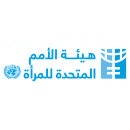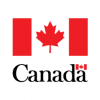Consultancy - Developing a Research Paper (Sharia Judiciary)
Title: Developing a Research Paper on the Impact of Arbitration within the Sharia judiciary on Women’s Access to Justice.
Background:
UN Women (UNW), grounded in the vision of equality enshrined in the Charter of the United Nations, works for the elimination of discrimination against women and girls; the empowerment of women; and the achievement of equality between women and men as partners and beneficiaries of development, human rights, humanitarian action and peace and security. Placing women’s rights at the centre of all its efforts, the UN Women leads and coordinates the United Nations system efforts to ensure that commitments on gender equality and gender mainstreaming translate into action throughout the world. It provides strong and coherent leadership in support of Member States’ priorities and efforts, building effective partnerships with civil society and other relevant actors.
UN Women plays an innovative and catalytic role in the State of Palestine since its inception in 1997. UN Women Palestine Office focuses its activities on one overarching goal, namely, to support the implementation at the national level of existing international commitments to advance gender equality in line with the national priorities. In support of this goal, and thoroughly taking into consideration the specificities of the Palestinian context, UN Women concentrates its efforts and interventions toward the realisation of following strategic goals: Mainstreaming gender in governance, peace and security; Supporting women's economic security and rights; and Promoting women’s rights and protection against violence.
In line with the Palestinian Government’s commitment to achieve gender equality and to fight Violence Against Women (VAW), and in full partnership with the Justice, Security and Social Sectors, including the Public Prosecution (PP), the Palestinian Civil Police (PCP), the Ministry of Social Development (MoSD), the High Judicial Council (HJC) and the Supreme Judge Department (SJD), UN Women, within its joint programme with UNDP and UNICEF- “Promoting the Rule of Law in Palestine- SAWASYA II” is supporting the Justice, Social and Security institutes to mainstream gender into their procedures and policies, and develop and provide gender responsive services to women victims and survivors of violence, through providing institutional capacity building and policy level interventions amongst others.
The Shari’a court system is a formal judicial entity with jurisdiction over family law/personal status cases in the State of Palestine. Its mandate relates to marriage, divorce, custody, alimony and other family law issues. This mandate is regulated under a legal framework that is inherited from previous eras which was expanded under the PA. Given the sensitivity of the areas that the Shari’a’ courts cover, they play a significant role in enabling and protecting women and children’s rights and enhancing access to justice.
Women are frequent beneficiaries of the Shari’a courts as the majority of legal claims are made by women. This is because women tend not to have other (external or extra-judicial) mechanisms for accessing justice, noting that the majority of women’s cases that preside before the courts involve women who face multi- forms of violence, including social, physical, psychological, sexual and economic. The arbitration system applied at the Sharia court has critical influence on women’s access to justice, particularly as pertaining to their financial and economic rights in cases of spousal discord.
Based on the recommendations of a Recent Appraisal of the Sharia Court effectiveness in realizing Women and Children’s rights, which was conducted in 2020 by UN Women and UNICEF and through collaboration with the Supreme Judge Department within the framework of SAWASYA II programme, a recommendation has been made regarding the arbitration system, which focused on establishing periodic monitoring and reporting mechanisms to assess the handling of family disputes by the Shari’a court system, including family counselling and arbitration.
In view of this, and in order to support Sharia Courts in enhancing women’s access to justice, and aligning their policies and services with women’s rights and gender justice standards and principles, UN Women in cooperation with the Supreme Judge Department is planning to conduct a research on the impact of the arbitration system within the Sharia Judiciary on women’s access to justice and realization of their rights, to provide policy and decision makers with evidence based insights and policy level recommendations related to the arbitration system at Sharia courts, including its structure, mandate, role and responsibilities of arbitrators, case management, efficiency, and accountability measures amongst others.
Objective of the Assignment:
The main objective of this assignment is to develop a research paper on the impact of the arbitration system applicable at Sharia Courts in the West Bank on women’s access to justice and the realization of their human rights. More specifically, the objectives of the assignment are two folds:
- To investigate and analyze the impact of the arbitration system at Sharia courts on women’s access to justice and the realization of their human rights.
- To issue evidence-based policy level insights and recommendations related to the structure, scope and mandate of the arbitration system; the quality and modality of the arbitration services provided at courts; roles and responsibilities of arbitrators, and the accountability framework and measures.
The research should be based on criteria and principles encapsulated within CEDAW and other related international human rights conventions. It should acknowledge and reflect on the voices and experiences of women beneficiaries of arbitration services. The research should utilize tools and methods that are appropriate to provide analysis, insights, and recommendations regarding the following main aspects:
- The legal and normative framework that regulate the arbitration system within the Sharia Judiciary.
- The human and institutional capacities within the Sharia Judiciary in relation to arbitration services.
The human capacities should capture aspects related to the qualifications, including the knowledge and skills, in addition to the expertise of personnel providing or facilitating arbitration services, particularly as pertaining to women’s rights, access to justice, arbitration standards and mechanisms, applicable personal status law and procedures, and other aspects as relevant. The analysis of the institutional capacities should capture and reflect on relevant details related to the institution’s by-laws, code of ethics, procedures, structural frameworks, monitoring and accountability measures and frameworks.
- Level of sensitivity and empathy of arbitrators towards women’s human rights, VAW and gender equality.
- Tools and methods used by arbitrators to investigate spousal’s discord and decide on the degree of responsibility each of the spouses’ bears.
- Level of satisfaction of women beneficiaries of arbitration services with the quality of services, including decisions taken by arbitrators to their cases.
- Level of privacy and confidentiality of women’s cases, including the facilities that arbitration services are provided in, in addition to the level of women’s security and safety throughout the arbitration process.
- Views and perspectives of judges and lawyers on arbitrators’ reports, and the quality of arbitration services.
Description of Responsibilities:
Under the overall supervision of the UN Women Special Representative in the State of Palestine, the direct supervision of UN Women Sawasya II Programme Specialist, and working in close cooperation and coordination with the Supreme Judge Department, the Consultant will undertake the following tasks, duties, and responsibilities:
- Develop an inception report that includes the work plan, the methodological framework, including the tools that will be used to collect data, a draft initial outline for the research, the timeline for the deliverables, to be approved by UN Women, following a consultation process with relevant actors.
The methodology should take into consideration in particular the following tools:
- Literature review of relevant references covering both regional and global levels.
- Bilateral meetings, focus groups discussions, semi structured interviews and other tools as relevant, ensuring data triangulation.
As part of the methodology, the consultant must develop a set of questions to identify, and assess the efficiency, effectiveness, relevancy, and responsiveness of the arbitration services provided to women by arbitrators. A questionnaire should also be developed to collect data related to women’s experiences and views.
2. Develop a research paper on the impact of the arbitration system and arbitration services on women’s access to justice, and share with UN Women for review, inputs and approval. As part of the research paper, the researcher must propose policy level insights and recommendations to enhance the arbitration system at Sharia Courts, the quality of services, and the accountability measures and frameworks amongst others.
3. Facilitate a round table discussion on the findings and the recommendations of the research with Sharia court judges, arbitrators, lawyers, UN Women and other actors as relevant.
4.Report on the assignment, by submitting a final narrative report that includes a description of the assignment, the achievement, the challenges, and recommendations. Minutes of meetings, and list of interviewees, raw data, tools used, and others should be annexed to the report.
جميع الحقوق محفوظة لموقع جوبس.
Competencies:
Core Values
- Respect for Diversity;
- Integrity;
- Proffessionalism.
Core Competencies
- Awareness and Sensitivity Regarding Gender,
- Accountability;
- Creative Problem Solving;
- Effective Communication;
- Inclusive Collaboration;
- Stakeholder Engagement;
- Leading by Example.
Please visit this link for more information on UN Women’s Core Values and Competencies: https://www.unwomen.org/en/about-us/employment/application-process#_Values
- Functional Competencies
- Ability to conduct need assessment through consultation with stakeholders;
- Very strong background on gender;
- Ability to manage time and meet tight deadlines;
- Focuses on impact and result for the client and responds positively to feedback;
- Consistently approaches work with energy and a positive, constructive attitude;
- Demonstrates strong oral and written communication skills;
- Builds strong relationships with clients, focuses on impact and result for the client and responds positively to feedback;
- Remains calm, in control and good humored even under pressure;
- Proven networking, organizational and communication skills.
Qualifications:
Education: University degree in Sociology, Law, Gender Studies, Human rights or any other related field.
Experience:
- A minimum of five years’ work experience in the areas of justice, women’s access to justice and ending violence against women.
- At least 3 years’ experience in research, preferably in areas related to access to justice.
- Regional or international experience in the area of arbitration is a great asset.
- At least one previous assignment related to mediation, or assessment of services provided to women.
- Experience with the UN system or/ and International Organizations is considered an asset.
Language Requirements: Professional knowledge of English.
Evaluation Criteria:
This SSA modality is governed by UN Women General Terms and Conditions. UN Women will only be able to respond to applicants who meet the minimum requirements.
Candidates should clearly indicate how they meet the above-mentioned criteria in their applications.
The following documents should be submitted as part of the application. Please make sure you have provided all requested materials:
- UN Women P11 including experience in similar assignments; the P11 form can be downloaded at http://www.unwomen.org/about-us/employment, a signed copy should be submitted;
- A sample of a research, preferably in areas related to arbitration or mediation.
Candidates should have the ability to quickly submit degree certificates, medical certification (of good health) expression of Interest (EoI).
Candidates will be evaluated using a cumulative analysis method taking into consideration the combination of the applicants’ qualifications mentioned above, and financial proposal. A contract will be awarded to the individual consultant whose offer receives the highest score out of below defined technical and financial criteria. Only candidates obtaining a minimum of 50 points in the technical evaluation will be considered for financial evaluation.
Technical Evaluation (70%) - max. 70 points:
- University degree in Sociology, Law, Gender Studies, Human rights or any other related field. (max. 10 points)
- At least 3 years’ experience in research, preferably in areas related to access to justice. (max. 15 points)
- Regional or international experience in the area of arbitration is a great asset. (max. 5 points)
- At least one previous assignment related to mediation, or assessment of services provided to women. (max. 10 points)
- A sample of a research, preferably in areas related to arbitration or mediation. (max. 10 points)
- Experience with the UN system or/ and International Organizations is considered an asset. (max. 5 points).
Financial Evaluation (30%) – max. 30 points:
The maximum number of points assigned to the financial proposal is allocated to the lowest price proposal. All other price proposals receive points in inverse proportion. A suggested formula is as follows:
p = 30 (μ/z)
Using the following values:
p = points for the financial proposal being evaluated
μ = price of the lowest priced proposal
z = price of the proposal being evaluated
Only long-listed candidates will be contacted.
Financial proposal. Shortlisted candidate will be requested to submit a financial proposal. The financial proposal shall specify a total lump sum amount breaking down a daily professional fee, proposed number of working days and any related expenses, i.e. travel and communications expenses.










